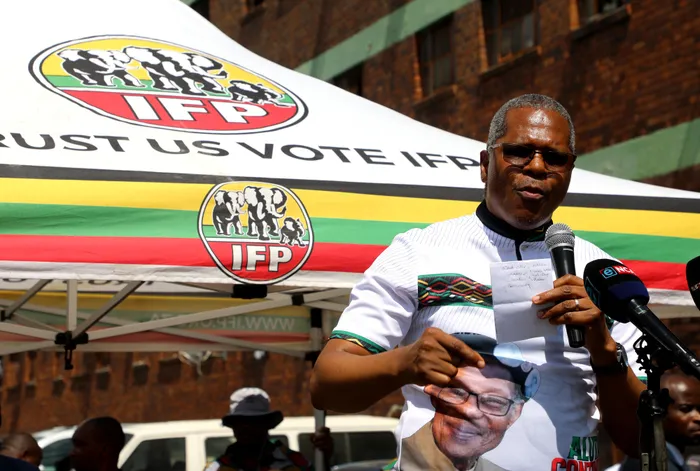
IFP leader Velenkosini Hlabisa said that the IFP remains dedicated to its position within the GNU and the government of provincial unity.
Image: Picture: Timothy Bernard / Independent Newspapers
The Inkatha Freedom Party (IFP) has reaffirmed its commitment to being a vocal and active participant in South Africa’s government of national unity (GNU) while sharply criticising the National Prosecuting Authority (NPA) for what it describes as poor performance.
IFP leader Velenkosini Hlabisa made these remarks during a media briefing on Monday afternoon, where the party reflected on its role in governance at national and provincial levels and addressed concerns related to crime and justice in the country.
Hlabisa emphasised that the IFP remains dedicated to its position within the GNU and the government of provincial unity (GPU). He said the party’s participation in these governments is aimed at healing divisions from the past while advancing a vision of inclusivity and development.
“The IFP is in the GNU or GPU to govern and to be part of governance. But this does not dilute the image or identity of the IFP,” Hlabisa stated. He highlighted the party’s involvement in the Gauteng and KwaZulu-Natal provincial governments and said their efforts are making an impact, particularly in crime reduction and economic development.
Turning to the issue of political violence, Hlabisa addressed recent allegations of political interference made by KwaZulu-Natal police commissioner Lieutenant General Nhlanhla Mkhwanazi. The IFP supports President Cyril Ramaphosa’s decision to place Police Minister Senzo Mchunu on special leave and establish a judicial commission of inquiry to investigate these claims. The party sees this move as aligning with its recommendations.
Hlabisa stressed that challenges within the South African Police Service (SAPS) are central to the ongoing problem of political violence and the slow progress in solving political murder cases. The IFP has called for a comprehensive investigation into political interference and any disruptions that have hindered the work of law enforcement agencies in these matters.
“The allegations by Lieutenant General Mkhwanazi have deepened the trust deficit between the police service and the public. This must be addressed through proper investigation and due process,” Hlabisa said. He expressed concern that a police-led investigation may not be suitable given the focus on SAPS in the allegations.
The party also criticised the National Prosecuting Authority for not doing enough to secure timely prosecutions, especially regarding the findings of the Zondo Commission of Inquiry into state capture. Hlabisa described the NPA’s current performance as a source of public mistrust and a “bleeding wound” in the justice system.
Restoring confidence in the security and legal institutions is a key priority for the IFP as the country prepares for the upcoming National Dialogue. Hlabisa recalled the vision of IFP founder Prince Mangosuthu Buthelezi, who championed honest and inclusive discussions on critical issues such as land reform, traditional leadership, poverty, and social cohesion.
The party supports the National Dialogue process, believing it to be essential for fostering true nationhood through open conversations and cooperation among South Africans.
“South Africa needs more than hope. We need united effort to rebuild and transform our nation,” Hlabisa said. “This requires urgency, meaningful reform, and active participation from all sectors of society. The time has come to move beyond words and take decisive action.”